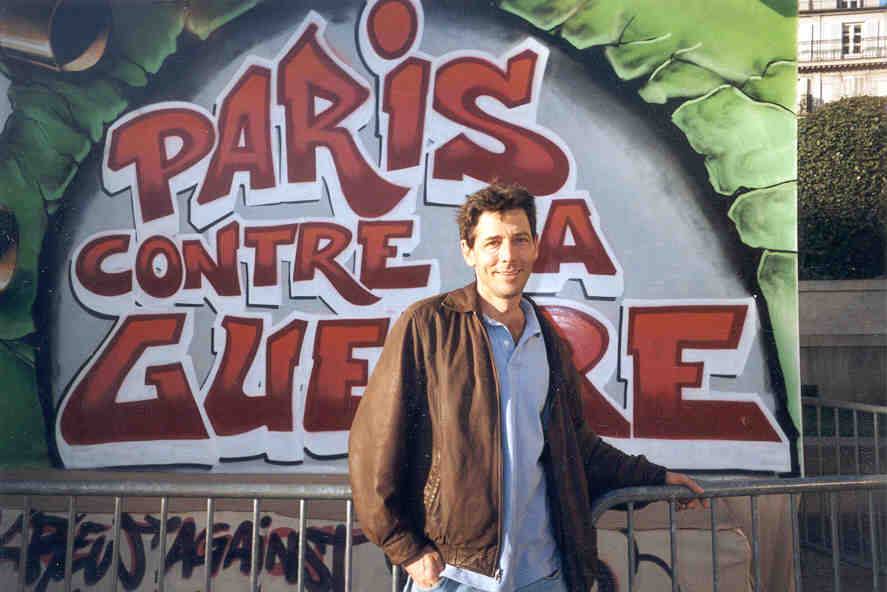Philippe Bourgois has conducted fieldwork in Central America (Costa Rica, Panama, Nicaragua, El Salvador, and Belize) and in the urban United States (East Harlem--New York and San Francisco). In Central America his research addresses the political mobilization of ethnicity, immigration and labor relations, political violence, popular resistance, and the social dislocation of street children. His research in the United States confronts inner-city social suffering and critiques the political economy and cultural contours of U.S. apartheid. He is also addressing gender power relations, and the intersections between structural and intimate violence. His most recent work focuses on substance abuse, violence, homelessness, and HIV-prevention.
Dr. Bourgois is currently conducting participant-observation fieldwork in the shooting encampments of homeless heroin injectors for an HIV-prevention study funded by the National Institute on Drug Abuse: "The Logics of HIV Risk Among Homeless Heroin Injectors." The project examines the ways unsafe syringe and ancillary paraphernalia sharing practices emerge out of the pragmatics of material and emotional survival strategies on the street. The goal is to demonstrate how macro-structural power relationships affect individual behavior. This involves linking the HIV-vulnerability of individuals to central social categories that organize power relations: ethnicity, gender, sexuality, and social class. From an applied perspective the project is providing feedback to clinicians, as well as the larger public health community to elucidate the internal indigenous logics and social contexts for how HIV-prevention outreach is interpreted by specific profiles of vulnerable street injectors. The goals are to improve clinical service for the homeless and to develop more effectively targeted preventative outreach modalities and risk-reduction programs. From a methodological perspective the project is fomenting a dialogue between qualitative, epidemiological and clinical approaches.
Dr. Bourgois is also analyzing experiences of war and political repression in Central America. He is conducting oral history interviews with former Salvadoran guerrilla fighters who have now immigrated as day-laborers to San Francisco. Many of these war veterans are from the exact same peasant communities and refugee camps in which he conducted fieldwork at the height of the Salvadoran civil war in the 1980s.
Finally, Dr. Bourgois is conducting follow-up interviews in East Harlem with the families of the Puerto Rican crack dealers he wrote about in: In Search of Respect: Selling Crack in El Barrio (1995 Cambridge). With a special focus on documenting the criminalization of poverty in the context of the growth of a penal-industrial complex in the United States, he is continuing to explore the macro-structural constraints that shape substance abuse and violence in the everyday lives of the socially vulnerable.
Recent Publications:
Scheper-Hughes N and Bourgois P eds. Violence in War and Peace: An Anthology . Oxford: Blackwell Publishing. 2004.
Bourgois P In Search of Respect: Selling Crack in El Barrio. New York: Cambridge University Press. 2003. Second Updated Edition.
A selection of his recent articles include:
See also select online PDF copies of select articles
2007 Bourgois, Philippe and Jeff Schonberg. Intimate apartheid: ethnic dimensions of habitus among homeless heroin injectors. Ethnography. 8:1:7-32. (French version available in Actes de la recherche en sciences sociales 160:32-45).
2006 Bourgois, Philippe et. al. Reinterpreting Ethnic Patterns among White and African American Men Who Inject Heroin: A Social Science of Medicine Approach. PLoS Medicine 3:10:e452.
2005 “Missing the Holocaust: My Father’s Account of Auschwitz from August 1943 to June 1944.” Anthropological Quarterly 78:1:89-123.
2004 “Explaining the Geographic Variation of HIV among Injection Drug Users in the United States.” Substance Use and Misuse . 38:14: (Second author with co-author Dan Ciccarone.)
2004 “Masculinity and Undocumented Labor Migration: Injured Latino Day Laborers in San Francisco.” Social Science and Medicine. 59:6:1159-1168. (Second author with Nick Walter, Philippe Bourgois and Margarita Loinaz.)
2004 “Everyday Violence and the Gender of Hepatitis C Among Homeless Drug-Injecting Youth in San Francisco.” Human Organization. 63:3:253-264. (First author with Bridget Prince and Andrew Moss.)
2003 “Introduction: Making Sense of Violence.” In Violence in War and Peace: An Anthology , Scheper-Hughes N and Bourgois P, eds. Pp. 1-27 Oxford: Blackwell Publishing. (Second author with Nancy Scheper-Hughes). 1-27.
2003 “Crack and the Political Economy of Social Suffering.” Addiction Research and Theory . 11:1:31-37.
2002 “Understanding Inner City Poverty: Resistance and Self-Destruction Under U.S. Apartheid.” In Exotic No More: Anthropology on the Front Lines, Jeremy MacClancy, ed. Pp. 15-32. Chicago, Il: University of Chicago Press, 2002.
2002 “Cross-Methodological and Theoretical Dialogue: Anthropology and Epidemiology on Drugs.” International Journal of Drug Policy . 13:259-269.

